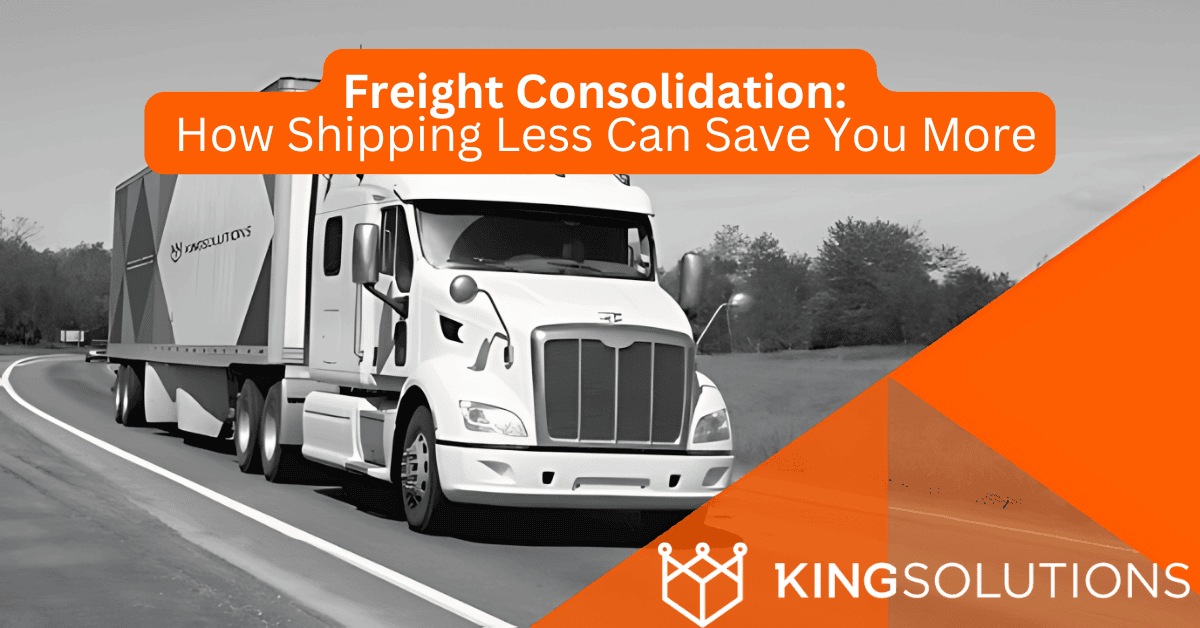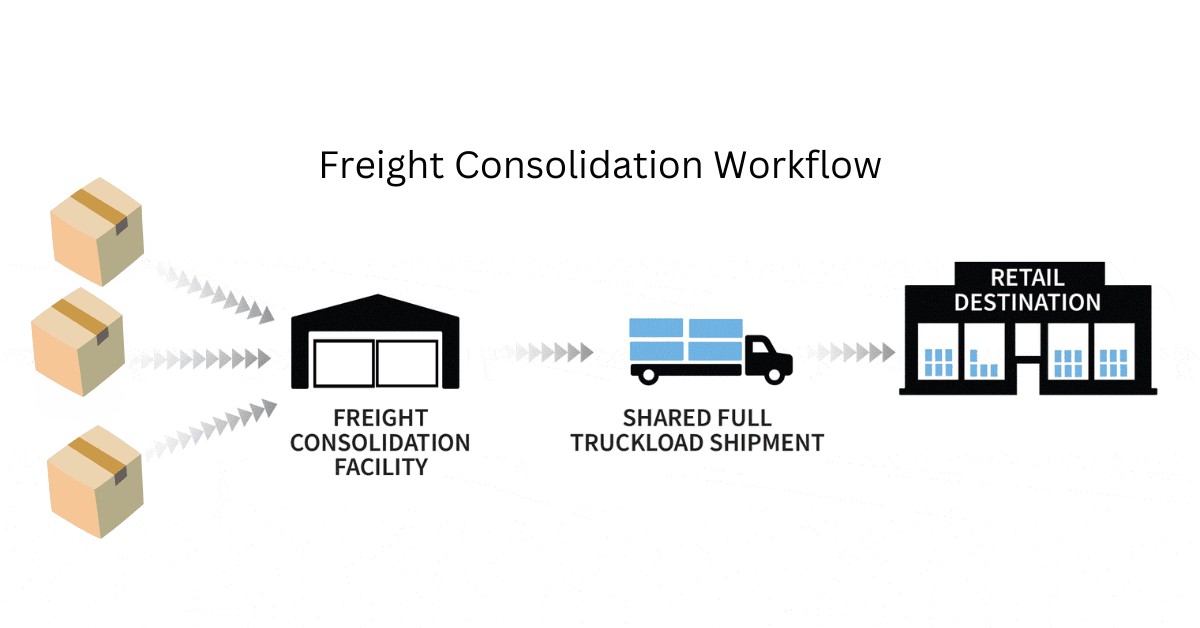Is Freight Consolidation Right for Your Business? A Guide to Optimizing Your Shipping Strategy
As businesses seek smarter and more cost-effective shipping solutions, freight consolidation has emerged as a strategic approach to optimizing logistics, controlling costs, and enhancing supply chain reliability. By combining multiple smaller shipments into one, companies can improve efficiency, reduce expenses, and gain greater control over their shipments. However, consolidated freight shipping isn’t a one-size-fits-all solution. So, how do you determine if it’s the right fit for your business?
As a leading freight consolidation services provider, King Solutions helps businesses make informed decisions about their shipping strategies. In this guide, we’ll explore what freight consolidation is, how it works, its benefits, potential drawbacks, and how partnering with a third-party logistics provider (3PL) can maximize its advantages.
What is Freight Consolidation?
Freight consolidation is the process of merging multiple small shipments—often Less-Than-Truckload (LTL) shipments—into a larger, single shipment that follows the same route. This approach minimizes wasted space and leverages bulk shipping rates, leading to reduced shipping costs and greater efficiency.
For a more in-depth understanding of freight consolidation, check out this guide from Inbound Logistics on freight consolidation strategies.
How the Freight Consolidation Process Works
- Collection: Shipments from various businesses are gathered and grouped based on similar destinations.
- Consolidation: The shipments are packed together efficiently at a consolidation center or warehouse.
- Transportation: The consolidated freight is shipped using optimized routes, often leading to lower consolidated freight costs.
- Deconsolidation: Once it reaches a distribution hub, the shipment is broken down into individual deliveries.
- Final Delivery: The smaller shipments are sent to their final destinations through local carriers or other shipping methods.
For insights into consolidated freight solutions, visit FreightWaves, a trusted source in logistics news and trends.
Key Benefits of Freight Consolidation
Many businesses turn to freight consolidation solutions because of the numerous advantages it offers:
✅ Cost Reduction – By sharing transportation space, businesses lower shipping expenses and consolidated freight fees, reducing per-unit costs. ✅ Improved Efficiency – Fewer shipments mean simplified logistics management and less administrative overhead. ✅ Environmental Sustainability – Fewer trucks on the road reduce carbon emissions, supporting eco-friendly business initiatives. ✅ Enhanced Security – Consolidated freight reduces handling, minimizing the risk of damage or loss. ✅ Scalability & Flexibility – Businesses can adjust shipments based on demand without committing to full truckloads.
For further reading on how freight consolidation reduces costs, refer to Supply Chain Dive.
Are There Any Disadvantages of Freight Consolidation?
While shipment consolidation offers many benefits, businesses should also consider potential drawbacks:
⏳ Potential Delays – Coordinating shipments with multiple businesses can result in longer transit times. Less Control – Companies must adhere to the consolidation schedule, which may impact delivery flexibility. Geographic Limitations – Retail consolidation solutions work best in high-traffic shipping routes; businesses in remote areas may have fewer consolidation opportunities.
For an objective look at the disadvantages of freight consolidation, check out Logistics Management.
How 3PL Providers Enhance Freight Consolidation
At King Solutions, we make consolidated freight shipping easy and effective with our specialized expertise:
Carrier Network & Route Optimization – Our strong carrier partnerships ensure cost-effective, on-time delivery. Freight Consolidation Software Integration – Advanced logistics technology enhances tracking, scheduling, and visibility. Customization & Scalability – We tailor solutions to fit your business needs, providing consolidated freight solutions that adapt to market changes.
For more details on 3PL freight consolidation benefits, visit CSCMP – Council of Supply Chain Management Professionals.
Optimize Your Shipping with King Solutions
Freight consolidation is a powerful tool for businesses looking to streamline logistics, reduce costs, and improve efficiency. However, implementing shipment consolidation in logistics effectively requires expertise and strategic planning. That’s where King Solutions comes in.
Ready to see how consolidating freight can optimize your shipping strategy? Contact us today to explore our freight consolidation services and discover a solution tailored to your business!
For further reading on cargo consolidation trends, check out Transport Topics, a leading source of logistics industry news.









 Joel Rice
Joel Rice